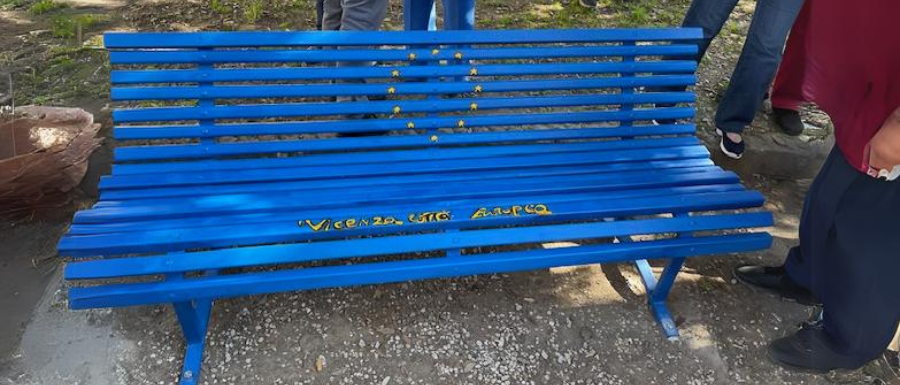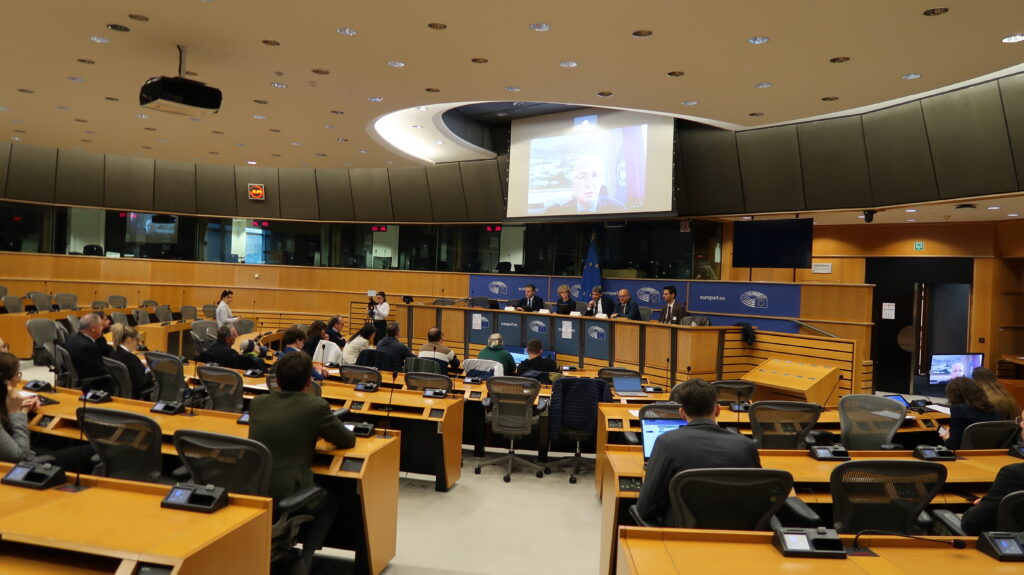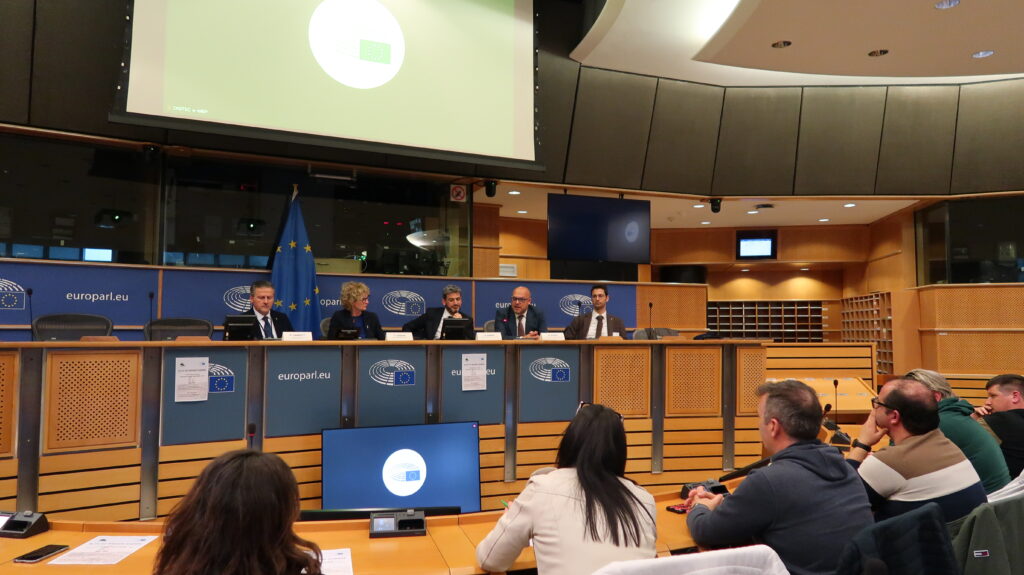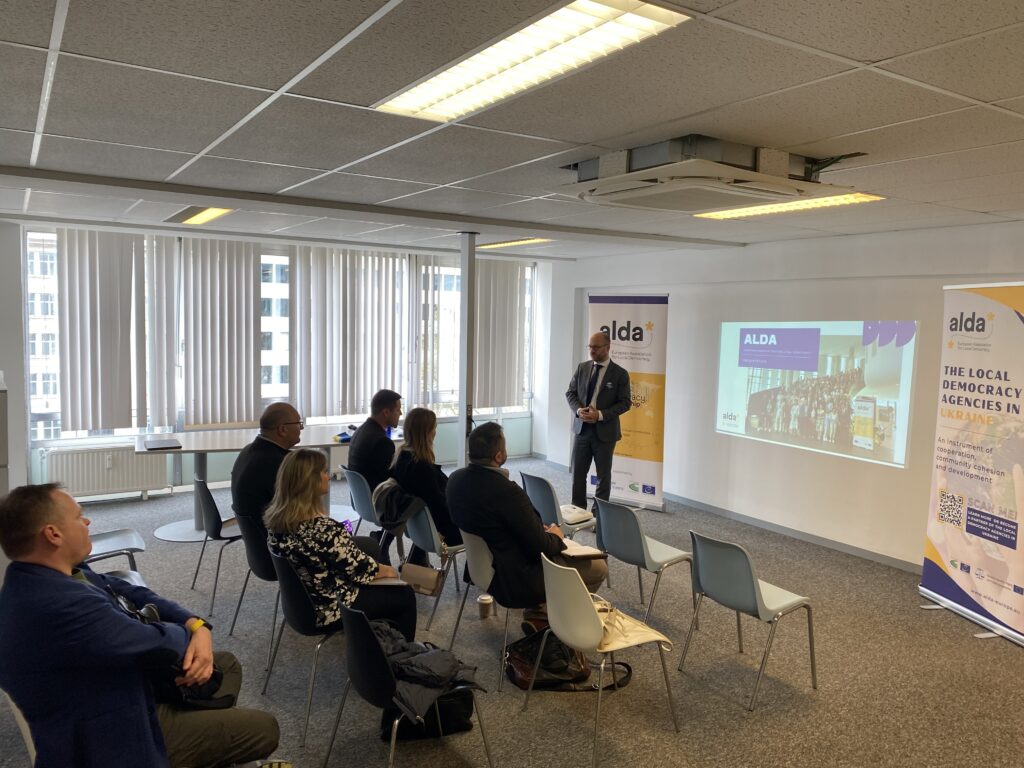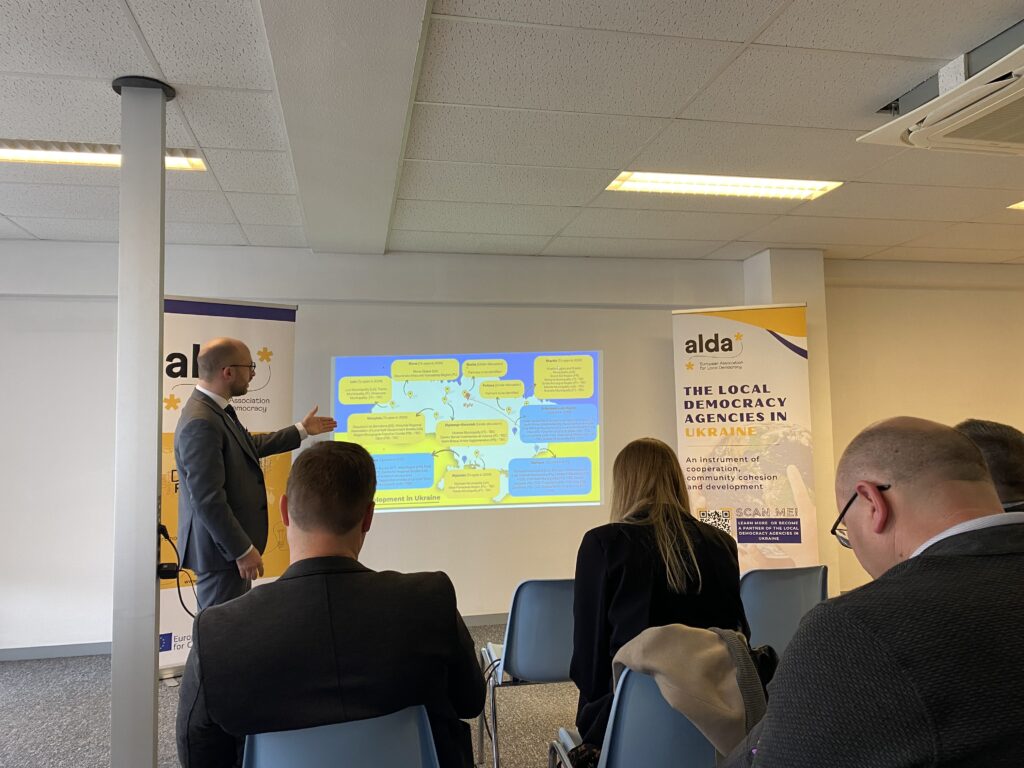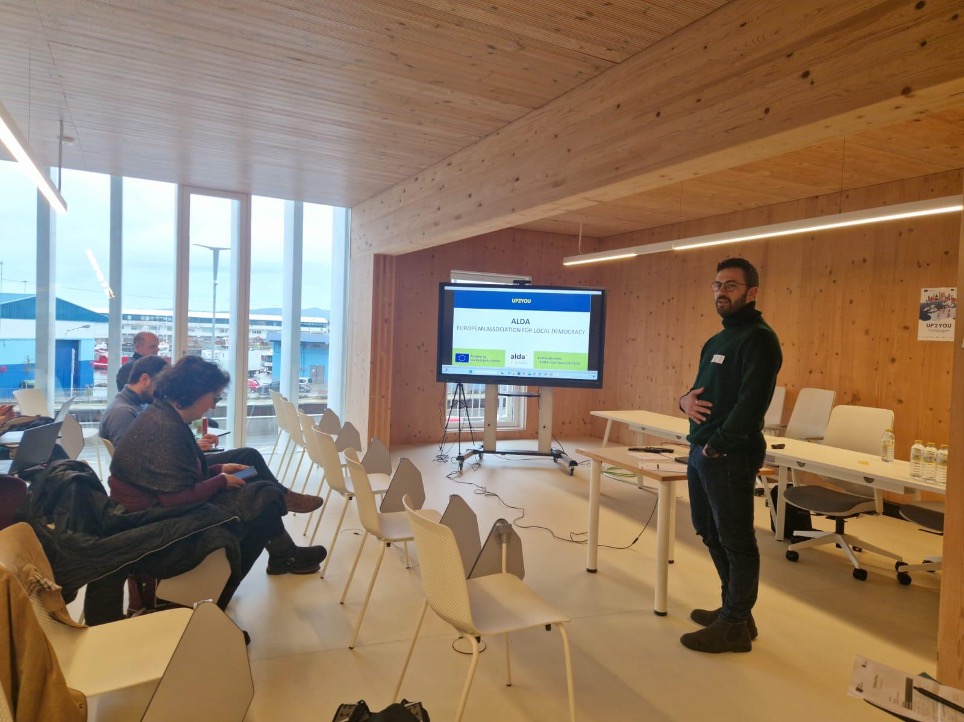In the heart of Mons, Belgium, amidst the 10th European Summit of Regions and Cities on March 19, 2024, the ADL Zavidovići Association, a member of ALDA, received the prestigious Mayor Paweł Adamowicz Award. This recognition lauds exceptional contributions to local and regional governance, commemorating the legacy of the former Mayor of Gdańsk (Poland), Paweł Adamowicz. His steadfast dedication to amplifying marginalised voices, fostering solidarity, and advocating for diversity in local governance resonates profoundly.
Speeches delivered during the ceremony echoed the spirit of courage and resilience embodied by the laureates.
Vice-president of the European Commission, Mrs. Věra Jourová, emphasised Mayor Adamowicz’s legacy of combating hate speech and intolerance, urging the building of bridges instead of walls: “Mayor Pawel Adamowicz left behind an important legacy; his dedication and courage showed us the importance of standing up to hate speech and intolerance. He spoke about the necessity to build bridges instead of wars, to give voice to the voiceless and to protect the most vulnerable communities.”
Mrs. Magdalena Adamowicz, Member of the European Parliament, echoed Paweł Adamowicz’s words, urging individuals to ask themselves, “If not me, then who?” She underscored the importance of collective action and solidarity in addressing societal challenges: “If not me, then who? If not Gdańsk, which other city should help refugees? If not the city of freedom and solidarity, what other city should bear witness to brotherhood towards the most disadvantaged? – this is what Paweł said to me…. So, at the crossroads, when you have to make a life decision, when you are in doubt, when you are overwhelmed by fear, stop for a moment, take a deep breath and each time ask yourself this simple question: if not me, then who?”
President of the European Committee of the Regions, Mr. Vasco Alves Cordeiro, highlighted the role of elected representatives in safeguarding democracy and fundamental values. He emphasized the transformative power of courage and determination in promoting freedom, solidarity, and equality.
During his speech, President of the CIVEX, Mr. Patrick Molinoz said that “awarding our prize this year to the Association of Local Democracy in Zavidovici in the heart of the Western Balkans is, obviously, full of meaning since it inevitably takes us back to the first war which, at the end of the last century, for the first time since the Second World War, has put Europe in mourning. This conflict, which lasted almost 4 years, notably caused a massive exodus of refugees and led to numerous displaced populations: an exiled and traumatized generation, which motivated our 2023 laureate to act locally in a surge of solidarity.”
For the complete speeches, click here.
Mrs. Maddalena Alberti, Director of ADL Zavidovići and recipient of the award, emphasised the need for resilience and perseverance in times of adversity.
She urged a steadfast commitment to structural change, invoking the enduring virtue of courage in overcoming seemingly insurmountable challenges: “We should not forget the past. As the saying goes: “History repeats itself; first as farce then as tragedy”. When tragedies occur, it is too late. Hence, we should resist the politics of walls, persecutions, control, and expulsions. In these times we need to be not only brave but resilient and perseverant. Things do not happen quickly but the change is the result of a constant and long-term commitment. Structural changes require structural work, and they are slow in motion but durable in time. As history teaches us, courage is a virtue characterized by an ‘endurance in the impossible’... Let the impossible become possible.”
For the complete speech of Mrs. Maddalena Alberti, click here.
Founded in 1996 during the Bosnian War, the ADL Zavidovići Association today represents a resilience and dedication to human rights. Stemming from the tragic events of 1993, where three pacifists from Brescia, Italy, lost their lives while delivering humanitarian aid, the association has grown into a dynamic force, extending support to communities in need.
To honour and commemorate this event, as well as celebrate this wonderful award, ADL Zavidovići had a wonderful celebration in Brescia on April 14, 2024, at the Capretti Auditorium, sharing this moment with the community and celebrating together. Participants were offered an aperitif accompanied by the Ottoni a Scoppio, a band that has always stood by the side of the marginalised and vulnerable.
The recognition and award underscores the association’s relentless efforts in promoting democracy, integration, and collaboration, both locally and internationally. Mrs. Antonella Valmorbida, Secretary General of ALDA, expressed deep pride in the association’s achievements, highlighting its commitment to strengthening local communities.
